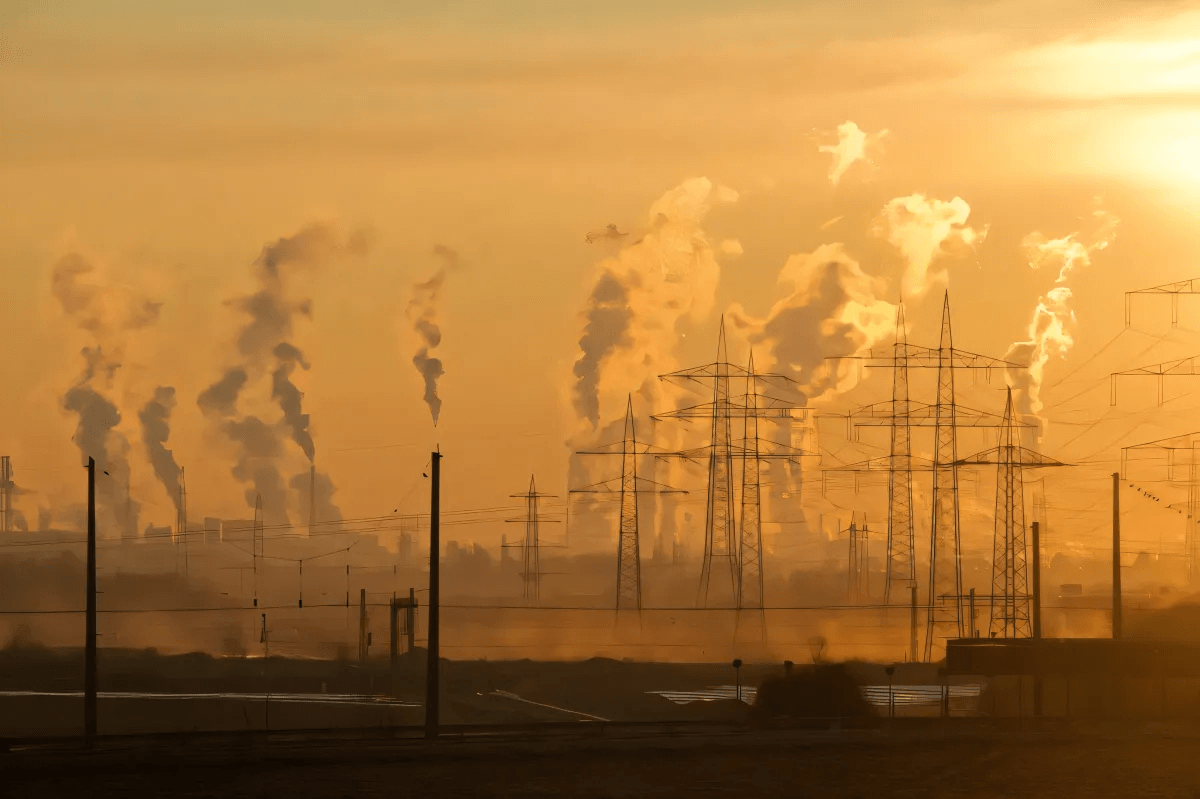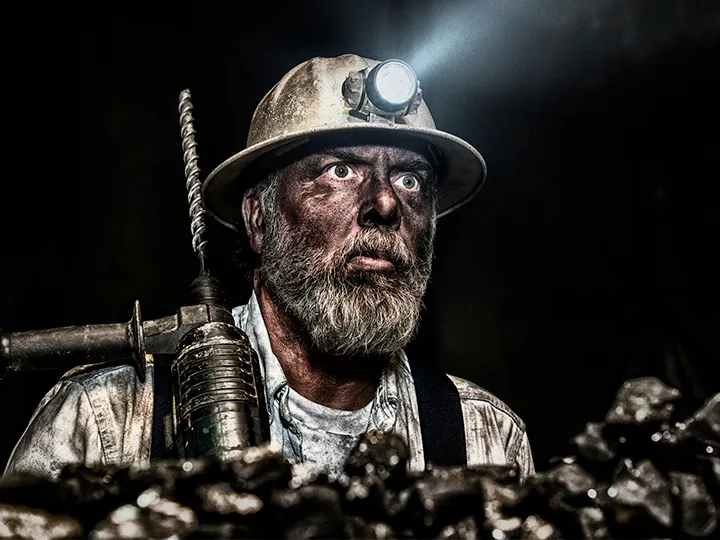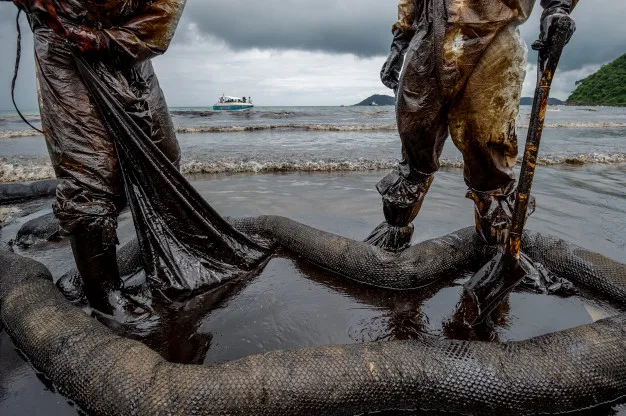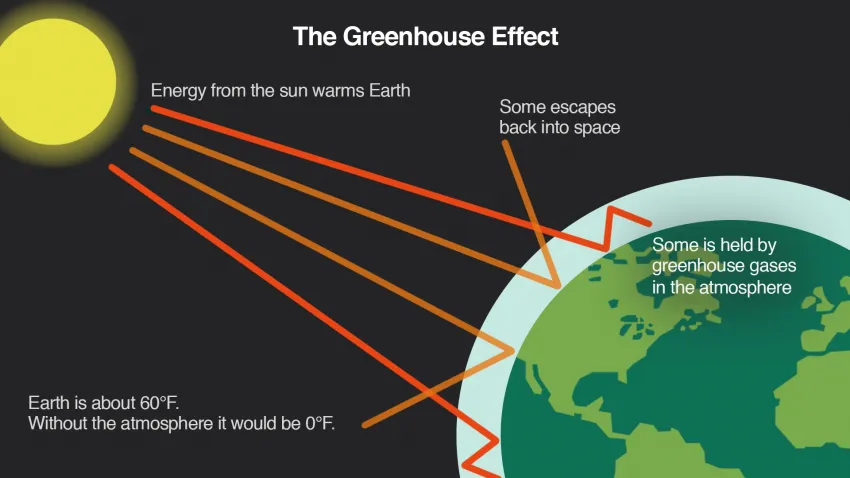Are Fossil Fuels Killing Us?

What exactly is a ‘fossil fuel’?
A great place to start is by defining what fossil fuel is, exactly. Additionally, it is helpful to know what the most common fossil fuels are. Fossil fuel is defined as a natural fuel such as coal or gas, formed in the geological past from the remains of living organisms.
The energy released from fossil fuels came from what used to be organic material. These materials were plants and animals that died millions of years ago.
Their organic matter is broken down over time and transformed into usable fuel. The fuel is then consumed and turned into productive energy, almost always by way of combustion.
The most common forms of fossil fuels are coal, crude oil, and natural gas. Most people are familiar with just about all three of these forms of fossil fuels. In recent decades, the term ‘fossil fuel’ has carried a more and more negative connotation with it.
There are many reasons, however, that there remain to be entire industries built around the extraction, refining, and utilization of these fossil fuels.
Fossil fuels are still relatively cheap. It has been uncovered very recently that solar power might now be able to produce the cheapest electricity, however fossil fuels have dominated the industry historically.
They have been the cheapest source for centuries, with coal and petroleum leading the way. The infrastructure is securely in place for the fossil fuel industry to keep producing power with ease.
Fossil fuels are actually abundant. The United States has nearly 1/4th of the coal on the globe. The US has more coal that can be mined, than the rest of the world has oil that can be pumped from the ground.
Those are actually positive-sounding things. So, why is it bad?
Fossil Fuels Can Kill You Directly
Most of the jobs around extracting and producing coal and oil are rather dangerous. There are physical dangers, like a coal mine collapsing and killing the workers or an oil rig catching fire in the middle of the ocean.

Coal miners have many risks with exposure to coal dust that leads to respiratory disease. According to a report from the CDC, coal workers’ pneumoconiosis (CWP) and chronic obstructive pulmonary disease (COPD) are the most common outcomes.
Coal miners are also exposed to crystalline silica dust, which causes silicosis, COPD, and other diseases. All of these will lead to impairment and potentially early death. Over 1,000 miners die every year from "Black Lung" alone.
Coal miners also deal with the potential mining accidents, directly killing them on the job. Collapsing mines, floods, and fires all lead to annual deaths.
Fossil Fuels Indirectly Kill 1 in 5 People
Fossil fuels kill more people than wars, murders, and traffic accidents combined. 8,000,000 people die prematurely every single year due to fossil fuel pollution. That is roughly the population of New York City or London.
1 in 5 premature deaths around the globe is now being attributed to air pollution from the burning of fossil fuels like coal and oil. The National Resources Defense Council reported the deaths being due to exposure to fine particulate matter.
In the same way that it affects coal miners, the particulate pollution infiltrates the lungs and immune system This causes inflammation of sensitive tissues, leading to chronic breathing issues and ultimately death.
The impact of extracting and combusting fossil fuels is felt by the entire planet, including wildlife and nature as much as humans. We are continually learning just how intertwined everything is, as well as the dangers that poses to our livelihood.
Fossil Fuels Kill Wildlife And Eventually Us

Wildlife, trophic levels, and the food web are all affected by the extraction and consumption of fossil fuels. The direct fallout from something like an oil spill is pretty obvious. Birds and marine life become trapped in oil directly. Additionally, they become restricted from being able to regularly access the surface or food sources.
However, the emissions and byproducts of fossil fuels can otherwise affect trophic levels in ways that aren't as directly apparent. An article from the Union of Concerned Scientists titled "The Hidden Costs of Fossil Fuels" states the following:
Coal-fired power plants are the largest source of mercury emissions to the air in the United States. As airborne mercury settles onto the ground, it washes into bodies of water where it accumulates in fish and subsequently passes through the food chain to birds and other animals. The consumption of mercury-laden fish by pregnant women has been associated with neurological and neurobehavioral effects in infants. Young children are also at risk.
Oil and gas wastewater can also impact aquatic wildlife. Oil and grease leaked into water systems can adhere to fish and waterfowl and destroy algae and plankton, disrupting the primary food sources of fragile aquatic ecosystems. And heavy metals in the wastewater can be toxic to fish, even in low concentrations, and may be passed through the food chain, adversely affecting humans and larger animals.
There are many more examples of negative impacts from the burning of fossil fuels and the pollution they create. If they are not directly killing animals through oil spills or deforestation, our own pollution will come back in the form of harmful chemicals in the food we eat.
There is already a worry that the microplastics found in fish and animals we eat will cause a build-up of microplastics within our own bodies as well.
The release of toxic chemicals into our food chain is far from the biggest worry when it comes to the combustion of fossil fuels, believe it or not.
Fossil Fuels Kill Us Through The Greenhouse Effect

The most worrisome byproduct of fossil fuel emissions is greenhouse gasses.
Greenhouse gasses such as Carbon Dioxide (CO2) and methane trap heat within the Earth's atmosphere. With normal levels of greenhouse gasses, the Earth stays at a comfortable, livable temperature. CO2 is soaked up by the oceans and forests, which then release Oxygen through plankton and trees respectively.
The issue, however, comes with the runaway effect created by the excess production of greenhouse gasses through the burning of fossil fuels. Increased levels of CO2 in the atmosphere create a hotter ocean, air, and land temperatures. This causes the melting of glaciers and permafrost; two giant sources of natural cooling.
Oceans are also unable to soak up as much CO2 as a result of warming water temperatures and saturated CO2 levels within the water itself. This leads to more CO2 remaining in the atmosphere and, you guessed it, more rising temperatures. We will have to actually suck CO2 out of the air to help prevent too much accumulation.
As you can guess, the runaway effect of this warming is the biggest concern for humanity. Don't get it twisted, either. "Climate change is killing our planet" is largely a myth. The planet will be fine, even if it takes thousands or millions of years to right itself.
The thing we are killing is ourselves. Humans will not be able to withstand the rising temperatures, rising sea levels and massively reduced biodiversity as mass extinction takes hold.
This is why the next 4 years are absolutely crucial for fighting climate change and replacing fossil fuel with other alternative sources of fuel like nuclear energy.
Opinions and Perspectives
The article could have mentioned more about potential solutions, but the problems are well explained.
I work in healthcare and see respiratory issues from air pollution all the time. This is a public health crisis.
Looking at these facts, I'm amazed we haven't made more progress on alternatives.
This reminds me why I started using public transport more. Small changes add up.
The next four years being crucial really stuck with me. We're running out of time.
We're literally choosing between short-term convenience and long-term survival.
Something needs to be done about the mercury emissions. That's affecting all of us through the food chain.
I appreciate that the article explained both immediate and long-term impacts of fossil fuels.
The part about coal miners really got to me. No one should die just trying to keep their lights on.
All these statistics are overwhelming but we need to face reality and take action.
Been following this issue for years and still learned new things from this article.
Interesting how they explained the ocean carbon absorption limits. Never thought about that before.
The health impacts alone should be enough reason to phase out fossil fuels faster.
We should be putting more resources into fusion research. That could be the real game-changer.
My company is transitioning to renewable energy. It's not easy but it's definitely possible.
The article mentioned sucking CO2 from the air. Sounds expensive but might be necessary at this point.
I've seen the effects firsthand in my coastal community. The sea level rise is already impacting us.
True about renewable costs, but we still need better battery technology to make it viable everywhere.
The economic argument against fossil fuels is getting stronger. Renewable energy costs keep falling.
I worry about my kids' future when I read articles like this. What kind of world are we leaving them?
We need to stop debating and start acting. The evidence is overwhelming at this point.
That comparison of death tolls to London's population really puts things in perspective for me.
Remember when we solved the ozone layer problem? We can solve this too if we work together.
The article makes me wonder about air quality in my city. Maybe I should look up local pollution levels.
I understand the economic concerns but what's the point of protecting jobs if we make the planet unlivable?
We keep talking about solutions but nothing changes. When will governments actually take serious action?
Just learned about the mercury in fish issue. Guess I need to be more careful about which fish I eat now.
The impact on wildlife is devastating. Once we destroy biodiversity, there's no getting it back.
Starting to think nuclear is our best bridge technology while we develop better renewable solutions.
Those direct death statistics from mining accidents are heartbreaking. There must be safer ways to power our world.
I agree about developing nations. We can't expect them to skip their industrial revolution when we benefited from ours.
The article doesn't mention that many developing countries still rely heavily on coal. We need global solutions, not just Western ones.
Solar might be cheaper now but what about storage? We still need fossil fuels for baseline power generation.
Been studying environmental science and can confirm these findings. The timeline for action is even more urgent than most people realize.
The food chain impacts are scary. We're basically poisoning ourselves in slow motion.
I found it interesting that they mentioned needing to actually remove CO2 from the air. That technology exists but needs more investment.
The infrastructure argument is getting old. We could create just as many jobs building renewable energy systems.
My family has worked in oil for generations. We understand the problems but need real solutions for workers during this transition.
Anyone else worried about the permafrost melting? That's going to release even more greenhouse gases.
The greenhouse effect explanation was really clear. I never understood before how ocean warming creates this dangerous feedback loop.
What frustrates me is that solar power is now cheaper, yet we're still clinging to fossil fuels because of existing infrastructure.
I feel the comparison to New York City's population really puts the death toll in perspective. It's staggering when you think about it.
A thousand miners dying yearly from Black Lung is unacceptable in this day and age. How is this still happening?
The article makes a good point about the planet versus humanity. Earth will recover eventually, but we might not be around to see it.
Nuclear energy seems like the obvious solution but people are still so afraid of it despite modern safety improvements.
The microplastics issue mentioned in the article is another concerning factor. We're literally consuming our own pollution.
I was surprised to learn that the US has a quarter of the world's coal. No wonder there's such resistance to change when we're sitting on that much resource.
That's a fair point about civilization's development, but shouldn't we know better now? We have the technology for cleaner energy.
Let's not forget that fossil fuels helped build our modern civilization. Without them, we wouldn't have the technology to even develop renewable alternatives.
The part about mercury in fish really concerns me. I had no idea coal plants were the largest source of mercury emissions in the US.
Sure, but how many more years of gradual transition can we afford? The article clearly states the next 4 years are crucial for fighting climate change.
I work in the energy sector and while I agree we need to reduce emissions, the transition needs to be gradual. We can't just switch everything off overnight.
The statistic about 1 in 5 premature deaths being linked to air pollution really hit home for me. My grandfather was a coal miner and died from respiratory issues.
Interesting article but I think it downplays the economic benefits of fossil fuels. Millions of jobs depend on this industry and renewable alternatives aren't ready to fill that gap yet.
I find it alarming that 8 million people die prematurely each year from fossil fuel pollution. That's more than wars and accidents combined. We need to take this more seriously.
